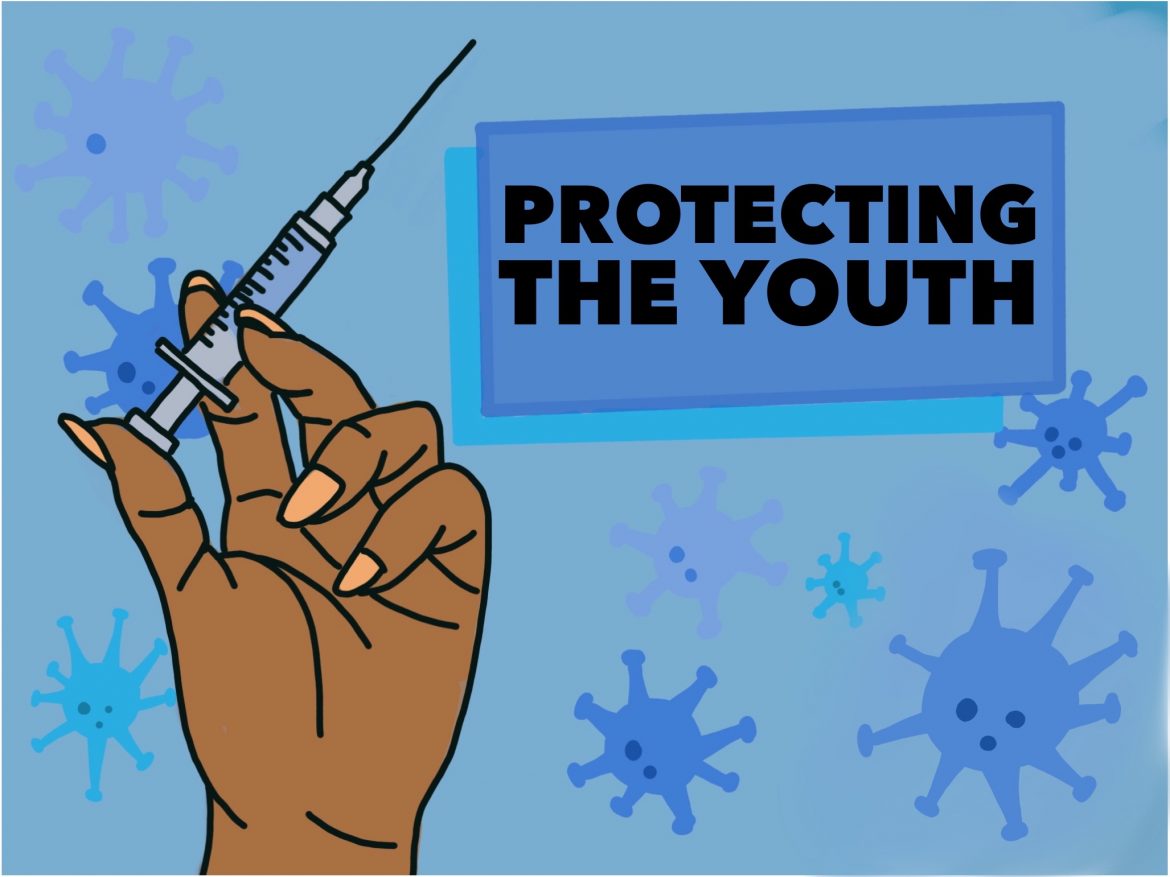Photo Credit: Angelin Thipahar, Illustrations Editor
Information on booking booster shots, COVID-19 risks, safety of vaccine
Sharon Lee, Associate News Editor
Recently, the Ontario government has approved the eligibility of the province’s youths aged 12-17 for booking a COVID-19 booster shot.
Information for youths and children on getting the booster shot
Among the youths in Ontario, the COVID-19 booster shot was initially only recommended by the National Advisory Committee on Immunization to those at high-risk, such as immunocompromised teenagers. However, youths aged 12-17 who had their second dose at least 168 days (six months) ago can book an appointment for the booster shot starting on February 18 at 8 a.m. They are advised to continue receiving the Pfizer vaccine.
The provincial government’s decision to expand eligibility among youths came from advice given by the chief medical officer of health and the Ontario Immunization Advisory Committee.
Those who have been infected by COVID-19 before receiving their booster shot, but have already received two doses, are recommended to receive the booster three months after infection.
Children aged 5-11 years old are eligible for two doses of the Pfizer vaccine but are not yet eligible for the booster shot.
Bookings can be done through the Ontario registration portal. Vaccines are available at pop-up clinics, pharmacies, and some family doctors.
Risks of COVID-19 in children and adolescents
Those unvaccinated have the highest risk of severe complications of COVID-19 infection, including illness and requiring hospitalization. The Omicron variant spreads easily; even infected individuals who do not show symptoms can pass on the virus to others. Being infected with COVID-19 may also lead to rare but severe health problems, including heart inflammation and Multi-system Inflammatory Syndrome (MIS-C), which is an inflammatory reaction. Children infected with the virus can develop symptoms that last weeks or months after disease onset; these symptoms include shortness of breath, tiredness, and difficulty concentrating.
Children and adolescents with chronic medical conditions are at more risk for severe COVID-19 disease. Those with risk factors such as obesity, chronic neurological conditions, and chronic lung diseases are also more susceptible to severe disease. Canadian surveillance data have also shown that hospitalized COVID-19 cases are four to five time higher in individuals aged 12 and older with immunodeficiency compared to the rest of the population.
Receiving the COVID-19 vaccine is the most efficient way to prevent severe symptoms of the virus and be protected from current and future COVID-19 variants.
Safety of the COVID-19 vaccine
The vaccine has been tested for children aged 5-11, and Health Canada has approved the vaccine to be safe and effective for this age group. Mild to moderate events such as fatigue, headaches, and muscle pain were predominant after receiving the second dose. The Pfizer vaccine was well-tolerated for youths aged 12-15. This age group also experienced mild to moderate events after the second dose.
Health Canada continues to monitor the COVID-19 vaccine for safety.




